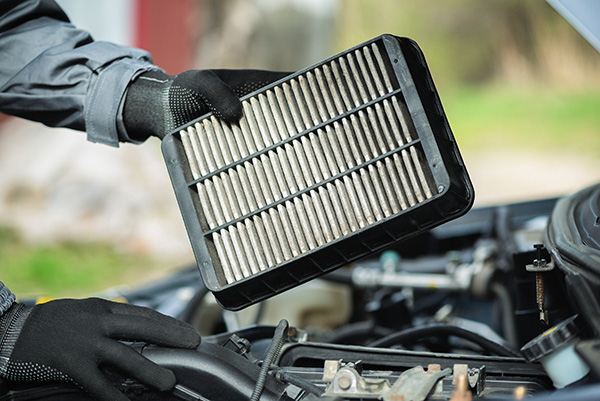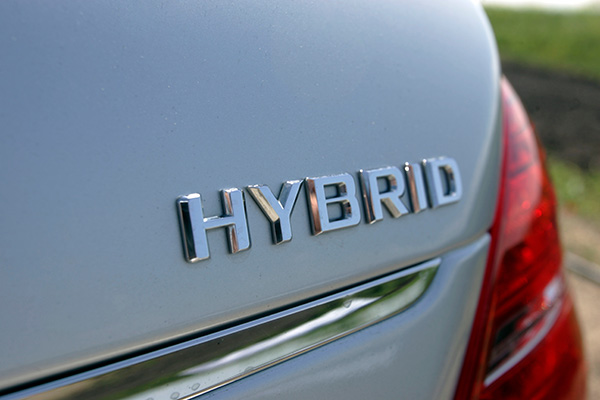Posted on 11/29/2024

Your car relies on a steady stream of clean fuel to run efficiently. But what happens when that flow is disrupted? One often overlooked component that can significantly impact your car's performance is the fuel filter. This part ensures that dirt, debris, and impurities don’t make their way into your engine. However, over time, the fuel filter gets clogged, which can lead to a range of performance issues. So, can a clogged fuel filter really affect your car's performance? How a Fuel Filter Works Before diving into the symptoms of a clogged fuel filter, it’s helpful to understand its role in your vehicle. The fuel filter acts as a barrier between the fuel tank and the engine, trapping contaminants and particles that can cause damage to the engine. Every time you fill up your gas tank, there’s a chance that small amounts of dirt or rust could be mixed in with the fuel. The fuel filter’s job is to catch these impurities before they enter ... read more
Posted on 10/31/2024

It’s unsettling when you’re driving in a straight line, yet your steering wheel seems to be pointing a few degrees off-center. This situation can feel odd, if not alarming, especially if you’re unsure of the cause. While the car might not appear to be drifting out of its lane, an off-center steering wheel indicates that something isn’t right. So, what could be causing your steering wheel to be off-center, and how can it be fixed? Misalignment of the Wheels One of the most common reasons for an off-center steering wheel is misaligned wheels. Over time, potholes, curbs, and even regular driving can cause your wheels to lose proper alignment. When this happens, the direction your wheels are pointed may no longer match the position of your steering wheel. Misalignment can lead to uneven tire wear, reduced fuel efficiency, and make driving less comfortable ... read more
Posted on 9/27/2024

Owning a Jeep is often synonymous with adventure, rugged performance, and off-road capability. Whether it’s a weekend warrior tackling tough trails or a daily driver, Jeeps are known for their durability. But, like any vehicle, they come with their own set of common problems that every owner should be aware of. While Jeeps are designed to handle tough terrains, the very nature of off-roading and heavy use can sometimes contribute to these issues. Let’s explore the five most common issues Jeep owners face and how to tackle them. 1. Death Wobble Perhaps the most notorious problem associated with Jeeps is the “Death Wobble.” This terrifying issue occurs when the steering wheel violently shakes, usually after hitting a bump at high speeds. Problems with the suspension or steering components, such as worn-out bushings, ball joints, or a loose trac ... read more
Posted on 8/30/2024

The Ford F-150 is an iconic American truck known for its durability, power, and versatility. It's been a best-seller for decades, earning a reputation as a reliable workhorse that can handle just about anything you throw at it. However, like any vehicle, the Ford F-150 has its issues. If you own one or are thinking of buying one, it's essential to be aware of the most common problems that could crop up. Understanding these potential pitfalls can help you stay ahead of repairs and ensure your truck remains in top condition. Engine Problems One of the most talked-about issues with the Ford F-150 is engine-related. Over the years, various models have experienced problems ranging from minor annoyances to significant failures. Among the most common engine issues is the infamous "death rattle" associated with the 3.5L EcoBoost V6 engin ... read more
Posted on 7/26/2024

Hybrid cars have taken the automotive world by storm, offering a blend of efficiency and performance that traditional gasoline vehicles can't match. As more drivers consider making the switch to a hybrid, understanding how these vehicles work and what kind of maintenance they require becomes crucial. We'll explain the mechanics of hybrid cars and explore whether their upkeep differs from conventional cars. The Inner Workings of Hybrid Cars At the heart of every hybrid car lies a combination of a traditional internal combustion engine and an electric motor. This dual system allows hybrids to optimize fuel efficiency and reduce emissions. But how exactly do these components work together? Hybrid cars typically operate in several modes. In low-speed, stop-and-go driving, the electric motor takes the lead, using power stored in the battery. This not only conserves fuel b ... read more